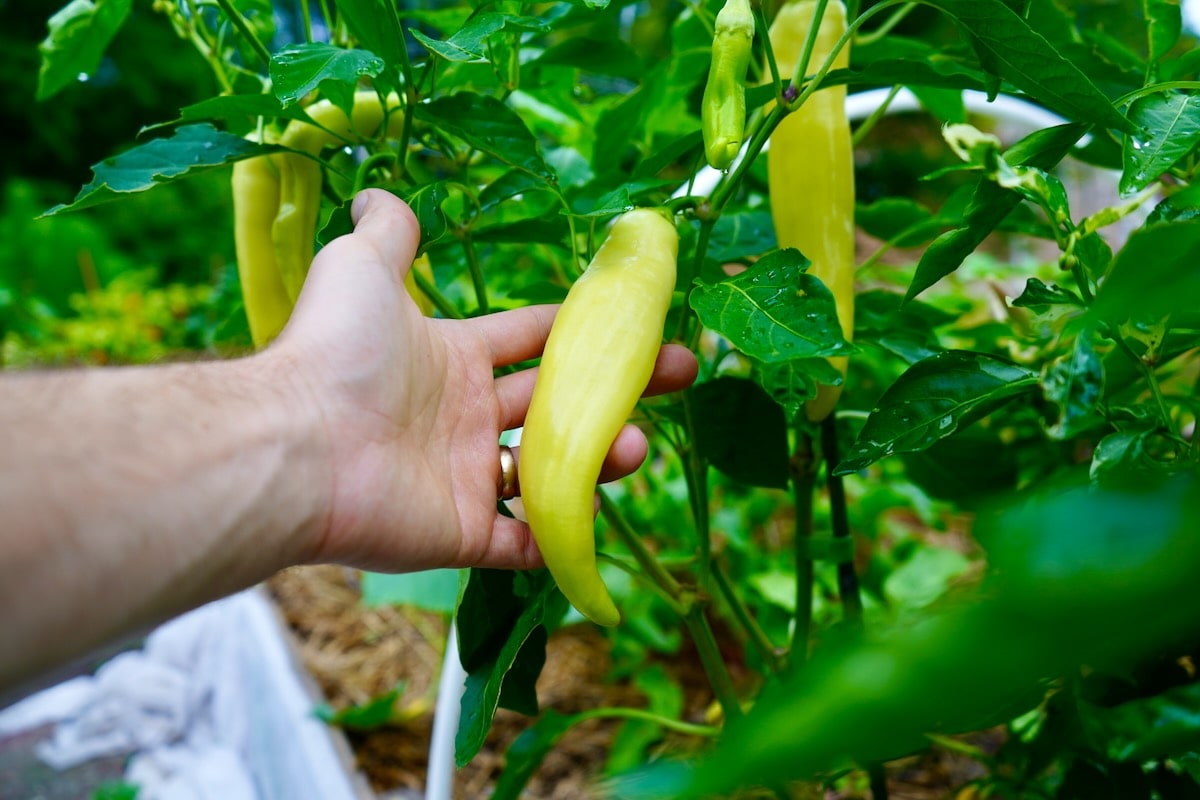Best Fertilizers for Peppers: A Comprehensive Guide to Increase Your Harvest
Wiki Article
Organic Vs. Synthetic Fertilizers: Which Is Best for Nurturing Healthy Pepper Plants?
In the realm of nurturing healthy pepper plants, the option in between synthetic and organic plant foods stands as a crucial choice with far-ranging effects. While both choices objective to give necessary nutrients to sustain plant development, the nuances of their impact on the dirt, plant health and wellness, and the environment spark a debate that mirrors throughout the horticulture area. Comprehending the unique advantages and prospective pitfalls of each plant food kind is essential for pepper cultivators looking for to enhance their returns while maintaining a sustainable and eco-conscious technique.Benefits of Organic Fertilizers
Organic fertilizers offer a lasting and environmentally-friendly technique to beneficial pepper plants, giving necessary nutrients without the use of synthetic chemicals. These all-natural fertilizers are stemmed from organic resources such as garden compost, manure, bone dish, and algae, promoting dirt health and biodiversity. Unlike artificial fertilizers, organic choices launch nutrients gradually, ensuring a balanced and stable supply for pepper plants to thrive.One considerable benefit of organic plant foods is their capability to improve dirt framework and water retention. By boosting soil wellness, organic plant foods advertise beneficial microbial task, which aids in nutrient uptake by pepper plants. Additionally, organic fertilizers decrease the threat of chemical run-off, shielding water resources from air pollution and securing the environment.
Additionally, natural fertilizers add to long-term soil fertility by advertising the development of advantageous soil microorganisms. These microorganisms aid break down raw material, launching nutrients in a type that is conveniently accessible to pepper plants. best fertilizers for peppers. By cultivating a healthy and balanced soil ecological community, organic plant foods sustain sustainable pepper farming practices that benefit both plants and the environment
Downsides of Artificial Fertilizers
Synthetic plant foods, in contrast to their natural counterparts, position various negative aspects when utilized to nurture pepper plants, affecting both plant wellness and ecological sustainability. One significant downside of synthetic plant foods is their propensity to seep nutrients from the soil promptly. This fast leaching can result in nutrition discrepancies in the dirt, creating plants to struggle with deficiencies or poisonings. In addition, artificial plant foods can damage helpful dirt microorganisms, such as earthworms and advantageous germs, interrupting the soil environment's equilibrium.Moreover, the overuse of artificial fertilizers can contribute to water pollution. Excess plant foods not soaked up by plants can remove right into water bodies, resulting in eutrophication, where algae blooms diminish oxygen degrees in the water, damaging marine life. Additionally, artificial plant foods are commonly originated from non-renewable resources, such as nonrenewable fuel sources, adding to carbon emissions and ecological degradation during their production.
Nutrient Absorption Comparison
Efficient nutrient absorption plays an important role in the general health and growth of pepper plants. When comparing natural and synthetic fertilizers in regards to nutrient absorption, natural plant foods have the advantage of giving a much more well balanced and slow-release resource of nutrients (best fertilizers for peppers). Organic plant foods consist of a variety of macro and trace elements that are not only valuable for the plants however likewise advertise healthy and balanced soil microbial activity, which helps in nutrient uptake. On the various other hand, synthetic plant foods often give a quick launch of nutrients, which can lead to seeping and drainage, resulting in lower nutrient absorption rates by the plants.In addition, organic plant foods boost soil framework and water retention ability, permitting pepper plants to gain access to nutrients much more efficiently. This better dirt quality promotes origin development, enabling much better nutrient absorption. Artificial plant foods, although originally improving plant development because of their high nutrient concentrations, might prevent lasting nutrient absorption by degrading soil health in time.
Environmental Influence Considerations

On the various other hand, artificial fertilizers, although usually more focused and right away offered to plants, can have destructive results on the atmosphere otherwise used appropriately (best fertilizers for peppers). Their manufacturing requires high power inputs, bring about greenhouse gas discharges and adding to environment modification. Moreover, the runoff of excess artificial fertilizers can contaminate water sources, bring about eutrophication and harming aquatic ecosystems.
Finest Plant Food Practices for Peppers
To accomplish this, it is vital to comply with best plant food methods tailored to the details requirements of pepper plants. One vital technique is to perform a dirt examination before using any fertilizers.One more crucial practice is to feed pepper plants at the correct time. Usually, peppers benefit from getting fertilizer at planting and after that once again when they start to flower. Over-fertilizing can lead to nutrition discrepancies and damage the plants, so it is essential to adhere to advised application rates.
Additionally, selecting a well balanced plant food with an NPK proportion that suits pepper plants' demands is basic. Organic fertilizers, such as compost or manure, can be exceptional selections as they release nutrients slowly and boost dirt framework with time. Synthetic fertilizers can offer a quick nutrient boost when required. Ultimately, incorporating artificial and organic plant foods carefully can aid support healthy and balanced pepper plants while minimizing ecological effect.
Conclusion

Organic fertilizers provide an environmentally-friendly and lasting method to nourishing pepper plants, supplying important nutrients without the use of synthetic chemicals. Unlike artificial fertilizers, natural alternatives launch nutrients gradually, guaranteeing a balanced and constant supply for pepper plants to flourish.
Synthetic plant foods, in contrast to their natural equivalents, position various downsides when made use of to nourish pepper plants, influencing both plant wellness and ecological sustainability. When contrasting synthetic and natural fertilizers in terms of nutrient absorption, natural fertilizers have the benefit of giving a much more balanced and slow-release source of nutrients.In addition, organic plant foods boost dirt structure and water retention capability, allowing pepper plants to gain access to nutrients more efficiently.
Report this wiki page